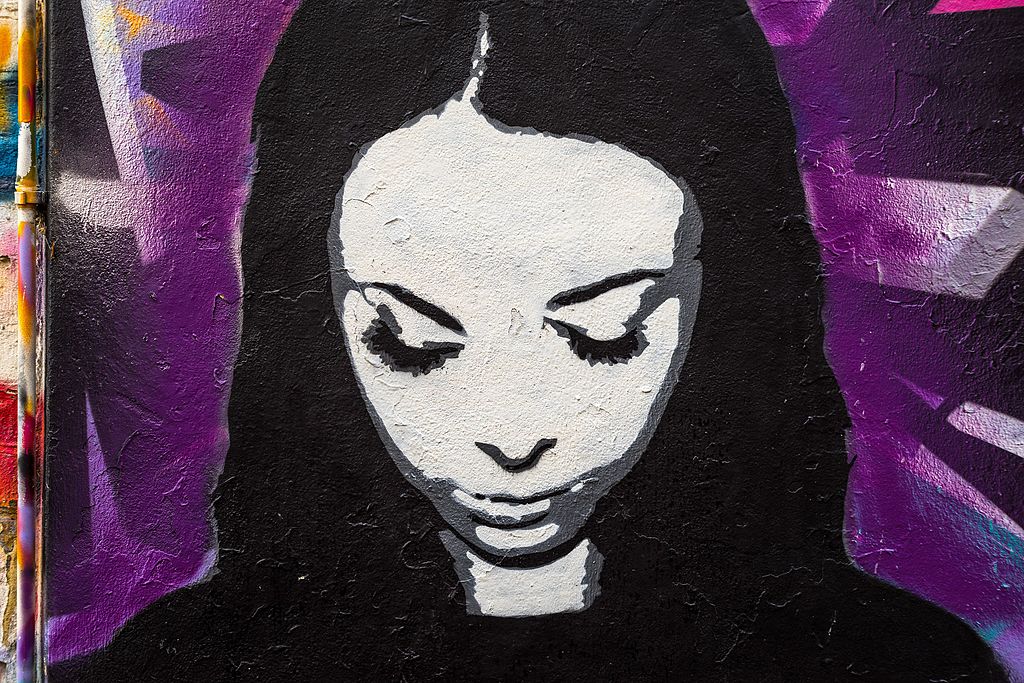
“We’ll light the candle together when she’s ready. For now I’ll trust the darkness for us both.” ~Terri St. Cloud
Over breakfast one morning recently, Jeff and I started reminiscing about past years, and something was said that brought back a painful memory for me. My boss at the time had been unimaginably small-minded. He had hung me out to dry. “I still can’t understand why he did that,” I said.
Jeff looked at me levelly. “You need to get over it, Jan,” he said. “It was years ago.”
Wise advice, without question. The only problem was that I didn’t want it just then.
Why is it that we are so seldom allowed a few moments just to hurt? After a serious heartbreak like the death of a loved one, sure, we’re given all the leeway we need. But the run-of-the-mill slights and small, persistent sorrows are treated as something we should quickly move past, even when they’re deeply painful.
Jeff, poor guy, was just trying to help. I couldn’t fault him. I knew I was being a bit ridiculous. But what I longed for was someone to acknowledge my outrage, let me sit with it, live into it for a few moments—and then gently remind me that it’s time to get over it.
A few hours later, after I’d licked my wounds and was feeling better, I began to wonder: Might I also be failing to honor the sorrows of others?
Everything I’ve learned in the past eight years, since the death of our son, has pointed me to the same lesson: The most important thing we can give each other in times of pain is compassion, a simple, “Oh, I bet that’s really hard.” We should offer that before—or instead of—advice on how to cope.
Even worse are the times when we immediately turn the conversation to ourselves: “I know just what you mean. I’m going through something like that too.”
I catch myself doing this way too often. My intent is to signal to the person that we’re partners in pain and can support each other. But the comment shifts the focus away from my companion’s heartache to mine.
Or we may inadvertently belittle our friend’s sorrow with stories of how we’ve overcome the same challenge.
Recently I overheard a conversation between two elderly women. One was talking about how emotionally wrenching she was finding it to give up her home and move to a retirement facility.
“Oh, you won’t miss it a bit once you get settled,” the other woman said.
She had already been through the experience and knew without question what lay ahead. I wanted to break in and hug the first woman. When we are in pain, the last thing we need is someone who knows without question what lies ahead.
Many of us find it deeply uncomfortable to be in the presence of suffering. And no wonder. We live in a culture where we’re taught from childhood to hide our hurts, to buck up and get over them. We don’t want to display them, and we don’t want to see them in others. Yet unspoken pain is all around us.
I’m talking here about a way of caring for each other that hews a fine line, because I in no way want to encourage my friends and loved ones to wallow in their sorrow. I want to honor it for what it is but never give it the power to rule my life.
It’s true that others may be able to benefit from what I’ve learned—but not immediately after suffering the same kind of hurt. And it’s entirely up to them whether or not they want to learn from me.
To show love for another in sorrow asks more of us than empathetic gestures. It asks us to try and understand exactly what the other is feeling, and even to risk getting a taste of that pain.
At a retreat in Maui in 2001, Ram Dass drew a clear distinction between empathy and compassion.
“Compassion for somebody else is that you are one with them and you hurt with them. That compassion comes out of the oneness of your heart, the oneness with all beings . . . ” He continued, “It’s not just empathy. It’s not one person feels empathy for another person. It’s got to be one person.”
How will I ever reach the point where I can feel as one with someone who’s hurting? In this I’m like a child learning to walk; I can only stumble and try again.
I’ve lived most of my life cultivating the image of myself as a strong, independent woman who doesn’t need anyone’s help. Reid’s death showed me how wrong I was. My task now, I think, is to be present for others who are hurting, because I know what suffering means. This knowledge is a bittersweet gift that’s been given to me by life. I’m trying as hard as I can to use it.
I do not always succeed.
This is what I know for certain: I can’t tell others how to heal. All I can do is sit with them—and when they’re ready, help them light a candle to find their way out of the dark. Doing this kindly, without giving voice to how I think they should move forward, is a practice I will struggle to follow the rest of my life.
One last thing: A few weeks ago, when I had another setback with work, my dear Jeff came to me and enveloped me in a hug. He held me close, hurting with me. And only then, after several minutes, did he remind me that it wasn’t all that important—that in fact I had plenty of reasons to let it go.
I responded by giving him the biggest, longest kiss I’ve given him in years.
Photo by mhx
About Jan DeBlieu
Jan DeBlieu is the author of four books about landscape and how the places where we live and work help shape who we are. Since the death of her son in 2009 she has focused on serving people in need or trouble. She has published articles in many national magazines and has won a national literary medal. Visit her at jandeblieu.com.












 Though I run this site, it is not mine. It's ours. It's not about me. It's about us. Your stories and your wisdom are just as meaningful as mine.
Though I run this site, it is not mine. It's ours. It's not about me. It's about us. Your stories and your wisdom are just as meaningful as mine.
A wise and gentle post. Thank you!
Thanks for sharing. I have a hard time expressing myself to my loved ones. Everything you brought up are the reasons why.
You are welcome! Why is it that the people we love are the ones we sometimes find the hardest to talk to?
I believe this line seems it up very well > “To show love for another in sorrow asks more of us than empathetic gestures. It asks us to try and understand exactly what the other is feeling, and even to risk getting a taste of that pain.”
It can be difficult to practice compassion and empathy when we are programmed to be strong and to not reach out for help, however we’re all inter-connected in a web of kindness. I have found that meditating on taking and giving (tonglen) is a powerful practice that gives us the opportunity to try to understand what others are feeling and to taste the pain.
Thank you for sharing your story!
I think as Americans we are culturally discouraged from showing our own pain or sorrow. and this carries over into discouraging us from showing empathy. I’m trying to short-circuit that life-long training!
Jan, that’s a great point and also something that I’m trying to unlearn!
I so much agree with you on this. It’s a reaction that’s almost automatic when someone is in pain, you want to make it go away. But we can’t do that and if we aren’t allowed to feel our pain and actually go into it, we only put it off for another time. Or we start to become numb and bitter and angry, and sometimes we don’t even know why. We all deal with grief and sadness differently, but the main thing is that we do need to deal with it. Because something happened a long time ago doesn’t mean you need to ignore it, it means that it hasn’t been dealt with, there is still something there that is simmering inside you and you need to give it the time it needs to finish. This might be sort of gross but it’s like a physical wound that is infected and unless you clean it up and put medicine on it, it just sits there getting bigger and bigger. I say, let them cry, let them rant and help them heal the wound, don’t cover it up and hope it will go away on it’s own. I know it is our natural reaction to want to fix someone as quickly as possible, but sometimes the wounds are deeper than we know. As for you, I am so sorry you lost your son, that is one of the pains we have in life that we carry always and I feel yours and can’t even imagine the sorrow you live with. Much Love.
Pam, it’s exactly like a physical wound! Thanks for this comment.
And yes, losing a child causes terrible pain. But we all get to decide whether our sorrow will ruin our lives, or whether we’ll overcome them to live in light. Sending love your way, J.
Some very good insights! Just being fully present with people who are hurting is what’s needed. Thanks for sharing, good reminder.
Talking to someone about my emotional hurt is tough, mostly because I’m afraid of what they’ll say to me. They tell me how to solve my problem, which is what I don’t want. I don’t need someone tell me, “Can you talk to her about it?” No, I cannot. I cannot bring myself to doing what I Should be doing, i.e. the right thing. I don’t want to do the right thing. And I feel like a failure because I’m not willing to do the right thing. I just want them to tell me that yeah, the other person sucks and be on my side, but they don’t. I don’t want suggestions on how fix it.
Its really amazing post, thanks for sharing…
I can’t tell my problem to somebody, i’m afraid i choose a wrong person to ask a help. i try healing myself.
Powerful words, Jan. Thank you!
This article can be written in 6 words “Drugs…LOTS and LOTS of Drugs”